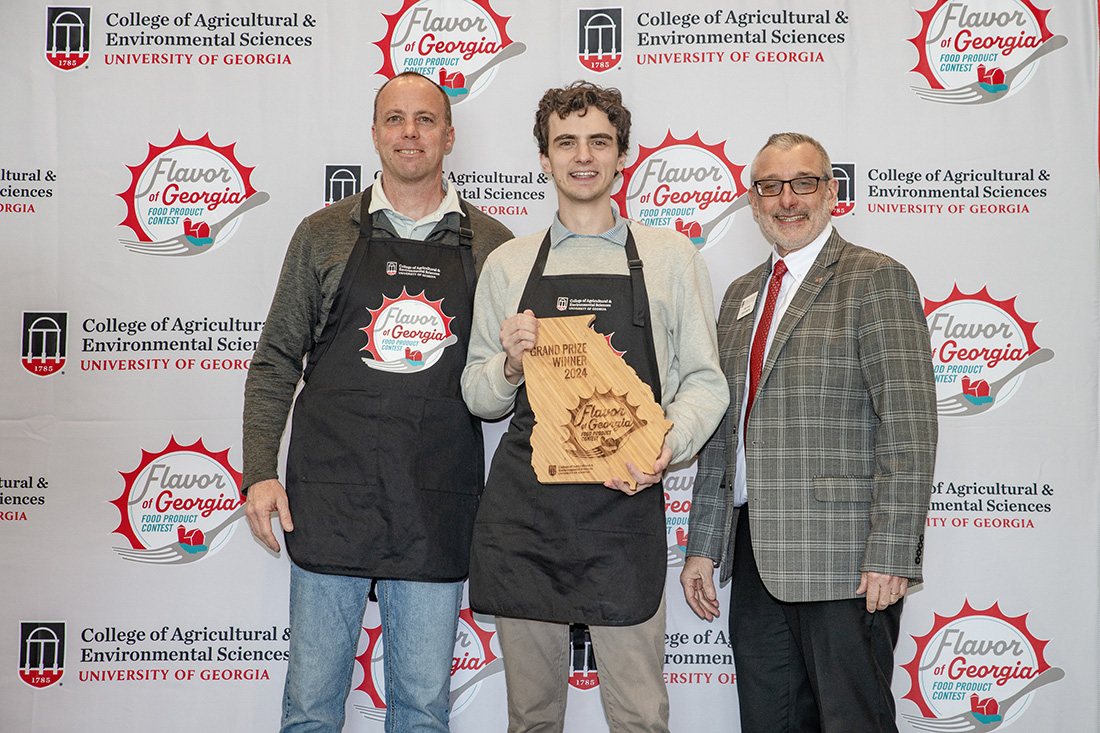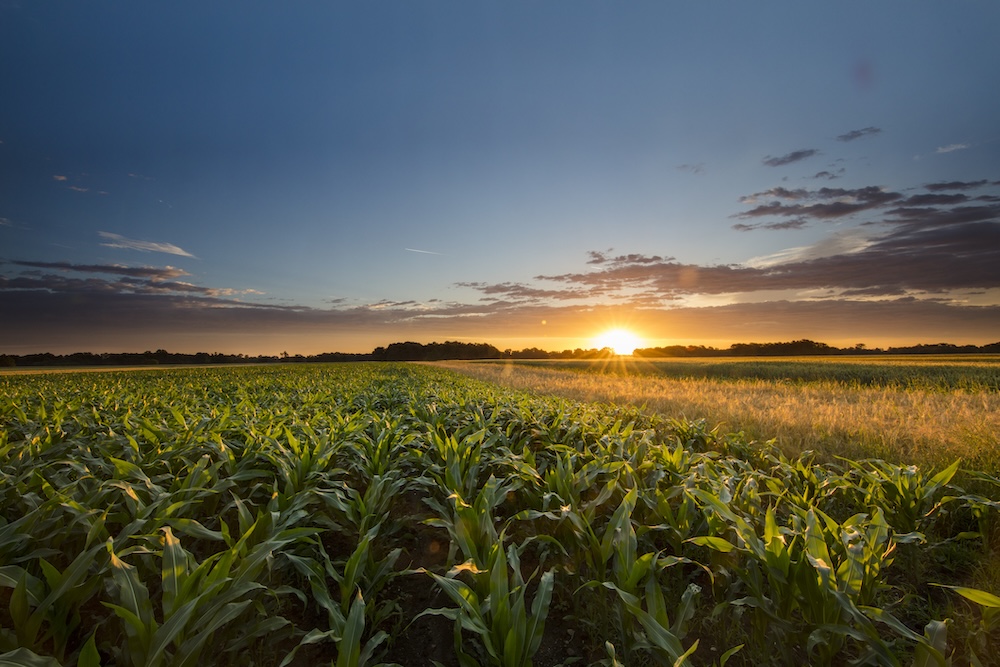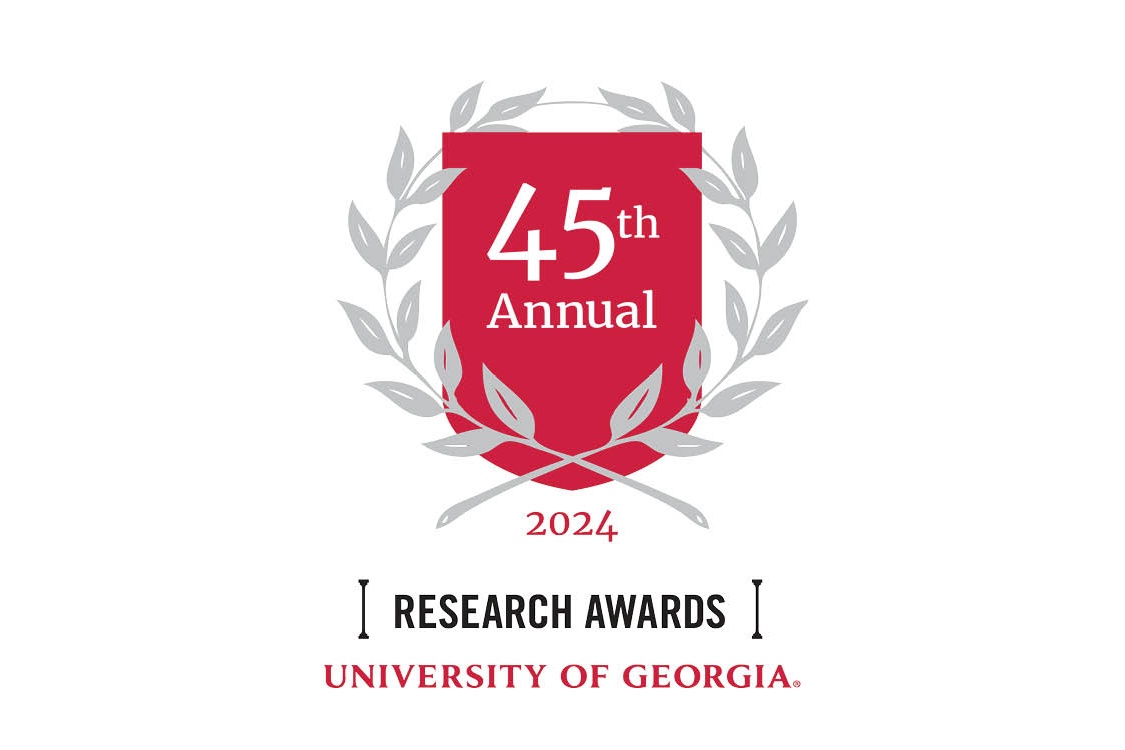As part of the Norman E. Borlaug International Agricultural Science and Technology Fellowship Program, two visiting researchers are working to ensure the safety the peanut crop in Africa with the help of the University of Georgia College of Agricultural and Environmental Sciences.
The college's Office of Global Programs hosted the researchers, Agnes Mwangwela from Malawi and Joelle Kajuga from Rwanda, for two months this fall and introduced them to UGA researchers who are working to solve the problem of aflatoxin contamination in peanuts.
While in Georgia, both researchers studied aflatoxin sampling methods in crops and in the human body. Aflatoxin is a carcinogenic by-product of naturally occurring fungi that contaminate food through the soil — either during growth or during processing. The fungi and toxin contaminate numerous crops, but is often linked to peanuts and maize.
“Agnes and Joelle are working on aflatoxin detection. Aflatoxin is a very serious issue where they are from. It is not as much of a threat here in the U.S., not because we don’t have aflatoxin, but because we have more systems in place to protect human health," said Vicki McMaken, assistant director of the college's Office of Global Programs.
In developing countries such as Malawi and Rwanda, where peanuts are a large part of the daily diet, processing and sampling protocols are inadequate to prevent aflatoxin exposure. As a result, up to 4.5 billion people are exposed to aflatoxins each year.
The United States Department of Agriculture's Borlaug Fellowship Program is designed to provide research opportunities to early career scientists from developing or middle-income countries—with a focus on building food security and economic growth in the scholars’ home.
“If I gain one technology, then I go back and we will have that for the benefit of my country,” said Kajuga, an award-winning agricultural researcher who leads a team of scientists as part of the Rwanda Agriculture Board (RAB) Horticulture Program.
In Malawi and Rwanda, nearly 60 percent of the population lives below the poverty line, and agriculture is their economic mainstay, employing over 80 percent of the population. Cash crops such as groundnuts, known as peanuts in the U.S., are grown for consumption and for income.
But processors do not purchase aflatoxin-laden peanuts and contaminated peanuts cannot be exported. This creates a food safety issue and limits the value of cash crops.
"Most Malawians sort the groundnuts and will keep the low quality for consumption, and the good quality goes to the market,“ Mwangwela explained.
Mwangwela hopes to change this. She is the senior lecturer in food science and dean of the faculty of food and human sciences at University of Malawi, Bunda College of Agriculture in Lilongwe.
“When I go back to Malawi, I will be working with students from the university to equip farmers and small scale groundnut processors with the skills to sort out contaminated peanuts from the food supply,” said Mwangwela. “It is also important to educate the families.”
This is one of the key elements of the Borlaug programs, according to McMaken. "The Borlaug program is very good at selecting scientists who are going to take what they learn and use it for the betterment of their country,” she said.
The Borlaug fellows are selected each year based on research proposals submitted to the USDA Foreign Agricultural Service. When a (request for applications) is announced, U.S. universities bid to host the fellows at their institution. Host institutions identify research mentors and arrange logistics and the Borlaug program covers the costs.
“We review the (request for application announcements) to see where there is a fit. With these fellows, because the Peanut & Mycotoxin Innovation Lab (PMIL) is located here at UGA, we knew we could connect these scholars with many different collaborators,” said McMaken.
All of the Mwangela and Kajuga’s mentors are PMIL project collaborators.
They were mentored at UGA primarily by Manjeet Chinnan, food science and technology professor emeritus, and J.S. Wang, professor and department head of the department of environmental health science. A third mentor, Kumar Mallikarjunan, professor of biological systems engineering, hosted the fellows at Virginia Tech during their visit.
Before becoming a Borlaug fellow, Mwangwela was already working with PMIL lead scientist Rick Brandenburg on a Southern Africa Peanut Value Chain Intervention Project.
Dave Hoisington, director of PMIL, escorted the scholars to the World Food Prize in Des Moines, Iowa. They also traveled through southwest Georgia as part of the annual Georgia Peanut Tour, visited JLA Testing Laboratory and Birdsong Peanuts Shelling Plant in Blakely and spent time at the USDA – Agricultural Research Service National Peanut Research Laboratory in Dawson.
“This Borlaug program is beyond my expectations,” said Kajuga. “When I go back to Rwanda, I will be working on linking our scientists with the U.S. scientists working on aflatoxins.”
As part of the Borlaug Fellowship Program, the mentors conduct follow up visits to Rwanda and Malawi to further ensure what was learned during the program at UGA is transferred back to the home countries.
McMaken says that the Office of Global Programs plans to bring more Borlaug fellows to UGA to continue to further internationalize the campus.






